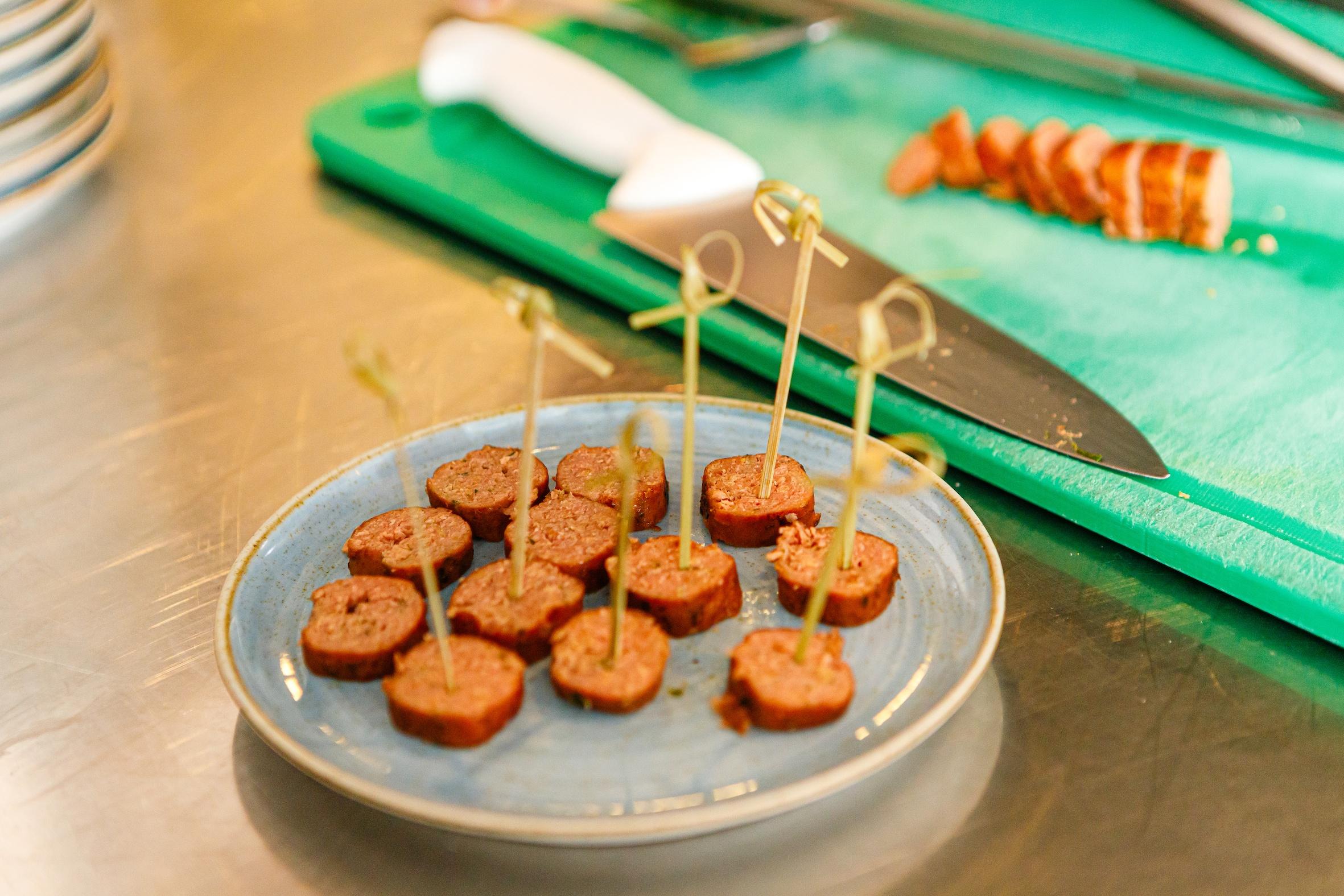As industries increasingly turn to synthetic sources that mimic real components for product development, the Brazilian biotechnology firm Cellva is attracting investor interest with its approach to cultivated animal fat and bioingredients.
The São Paulo-based company has developed a process to grow pork fat in a lab environment without the need to slaughter animals, using advanced bioreactors to multiply fat cells extracted from a living pig. The lab-grown fat provides fatty acids like omega-3 and omega-9, while also offering an alternative to traditional animal fat in food products.
Beyond fat cultivation, Cellva also develops microcarriers and microcapsules. These platforms provide protection and controlled release of active ingredients and can be applied not only in the food industry but also in pharmaceuticals and beauty products.
To broaden its reach and expand the commercialization of its patented products to new markets, the company recently raised a seed round of BRL 8.5 million ($1.5 million), attracting a mix of Brazilian and international investors such as Fundepar, Proveg, Rumbo, AirCapital, and EA Angels. Additionally, a pool of 151 individual investors led by the equity crowdfunding firm Captable also joined the round, representing 10% of the total amount raised.
“We aim to target the high-value nutraceuticals market and provide more affordable access to essential fatty acids,” says the company’s chief executive, Sérgio Pinto, in a Forbes interview. According to the entrepreneur, who co-founded the company in 2022 alongside Bibiana Matte, the total addressable market for oils, fats, and fatty acids is valued at $220 billion.
Cellva aims to meet the growing demand for sustainable and high-performance ingredients in global markets, Pinto notes. “Our focus is on developing efficient and versatile technologies, rather than competing directly with existing fat or oil products,” he adds.
Cellva’s founders Bibiana Matte and Sergio Pinto
Regarding international expansion, the firm is actively exploring opportunities in the United States, where the nutraceuticals market is more developed compared to Brazil. Pinto’s strategy involves forming strategic partnerships with global ingredient suppliers and consumer brands in the food, beauty, and pharmaceuticals sectors, leveraging their distribution channels and market expertise.
Cellva currently has “very modest revenue,” according to its CEO, with initial sales coming from microencapsulation projects with a research institute and an international client. “We are more focused on closing larger commercial contracts than making small transactional sales at this stage,” Pinto says.
For the next year, the biotech firm plans to increase its recurring revenue from the current five-digit figure to around 250,000 BRL ($46,000). The company expects to start ramping up production to 8 tons per month in the first half of 2026, aiming for BRL 15-20 million ($2.7-3.6 million) in revenue by the end of that year.
According to the founder, the fundraising process was a “learning experience,” as the Brazilian investment landscape is still very focused on more traditional sectors like e-commerce and fintech.
“As a biotechnology company, we have different timescales and investment theses – we aim to provide a return on investment in around 6-7 years, unlike other businesses that may operate under a very different model,” Pinto says.
While some investors might want quicker returns, others seem willing to wait: according to Pinto, Cellva is considering an earlier-than-planned fundraising round of around $8 million, as the company has received interest from investors willing to provide checks up to twice the size of their recent raise.
“We are reflecting on the best timing and amount for our next round, balancing the need for additional resources with maintaining an appropriate equity structure,” he concludes.
Source: bing.com



